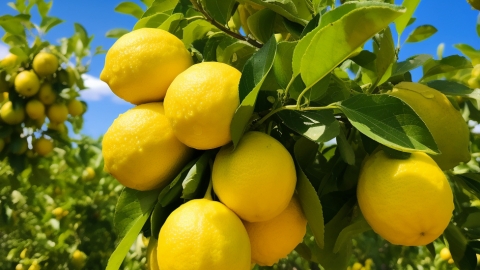Can limes protect and nourish the liver?
Generally speaking, lemons have a certain auxiliary effect in protecting and supporting liver health, but their effectiveness is limited and moderate consumption is important. Specific analysis is as follows:

Lemons are rich in antioxidant substances such as vitamin C and flavonoids. These components help eliminate free radicals in the body, reduce oxidative stress-induced liver damage, and vitamin C can also promote liver metabolic function. Consuming lemons in moderation or drinking lemon juice can provide nutritional support to the liver and offer certain benefits for maintaining normal liver function. However, these effects are relatively mild and cannot replace professional liver protection measures. Excessive consumption may irritate the gastrointestinal tract due to acidic substances, indirectly affecting overall health.
Although lemons offer some liver-protective benefits, they should not be consumed in large quantities on an empty stomach, as citric acid may damage the gastric mucosa and cause gastric discomfort. Additionally, the liver-protective effects of lemons vary among individuals, and for those who already have liver disease, simply consuming lemons is unlikely to bring improvement, and should be combined with other health management approaches.
In daily life, if one wishes to support liver health, moderate lemon consumption can be combined with other nutrient-rich fruits and vegetables such as broccoli and grapes. Maintaining a regular sleep schedule, avoiding excessive alcohol consumption and staying up late, and reducing the burden on the liver are more beneficial for maintaining liver health.








